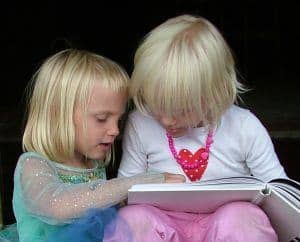Learning to be truly kind can be a lifelong task. Studies show that the desire to help or comfort is an innate part of the human psyche, and that empathy is one of our most enduring traits, but as a parent faced with trying to foster these traits in a child, you may feel like you are grasping at the utterly indescribable. How do you teach something like that?
It turns out that lessons of love and respect for fellow human beings are taught primarily by example. If you want to teach your child to be kind to others, you must do so yourself.
Model Kindness at Home
It is not quite that simple, of course. For one thing, it can be extremely difficult to foster completely generous responses in yourself and in your home. There are many reasons, after all, for us to be less than kind to each other, especially when it comes to words. It is best therefore, to begin working on creating an atmosphere of kindness and respect around your child as early as possible. Over time you will find that it becomes easier and that you slip less. In addition to knowing that you are modeling the correct behavior for your child, you will see your life improve in many imperceptible ways.
You can begin modeling kindness, empathy, and respect at home. Take care when you choose your words and actions around your child and other members of the household. Address arguments and disagreements with modulated tones and reasonable responses. Avoid behaviors like shouting and name-calling. That way your child will learn how to treat others even in emotional situations and you will have a solid example to direct your child’s attention to when discussion the subject.
Teach Kindness Abroad
In order for your child to learn to be kind to others, they must have encounters with other people and children. This is why it is so important to arrange for play dates or even preschool. If your child is never around other children, then they will not be able to experiment with the concepts of respect, empathy, and kindness that you are trying to teach. When you and your child leave the house for any reason, be on the alert for teachable moments. Note your child’s reactions to the words and actions of others and try to relate them to appropriate concepts and ideas.
If your child displays kindness or empathy, praise them enthusiastically so that they know they have done well. If your child reacts to someone else’s misfortune by laughing however, ask them to consider how that person might be feeling and whether or not it is okay to laugh at them. It will take time to for these skills and ideas to become rooted in your child’s behavior, but you will begin to see some results right away. Just remember that this is a process and keep working to teach your child how the become the best person that they can.
Teach Them to Be Kind to Themselves
Kindness isn't just for other people. Your child should learn to be kind to themselves, too. You can teach respect for oneself from an early age by, again, demonstrating it yourself. Part of this is taking care of yourself. Eat well, drink plenty of water, go to the doctor for check-ups, and do anything else you can to take care of yourself properly.
Allow your child to be self-reflective, not self-critical. Being self-reflective means identifying mistakes you've made, but being able to forgive yourself and move on from them. Being self-critical means criticizing yourself without any effort to forgive yourself and better yourself. Someone who is overly self-critical will, in turn, have low self-esteem.
Help them learn how to deal with disappointment and failure. When you experience something disappointing or you fail at something, show them that while it's okay to be sad, you shouldn't let that emotion overwhelm you. Look for ways that you can improve, accept the way you're feeling, and then move forward. This is the healthiest way to deal with these sorts of emotions.
Ultimately, teaching your child to be kind to themselves and to others is a process. It won't happen overnight, but rather after years. Your child needs to develop emotionally, which won't happen as soon as they start preschool. With careful parenting, you can ensure your child reaches each emotional milestone effortlessly.
